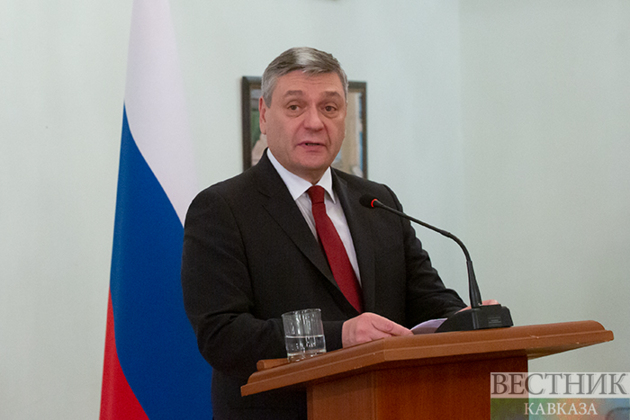The Russia-Iran Treaty on Comprehensive Strategic Partnership contains no military commitments from either side, Russian Deputy Foreign Minister Andrey Rudenko said.
"I would like to point out that the signing of the treaty does not mean the establishment of a military alliance with Iran or mutual military assistance," Andrey Rudenko said.
According to him, the treaty’s Article 3 says that Russia and Iran will not provide military or any other assistance to an aggressor in case either of them comes under attack, and will rely on the UN Charter and other norms of international law to resolve conflicts.
Another separate article covers in detail ways to counter unilateral coercive measures.
"The parties clearly define them as unfriendly acts that violate international law, and commit to coordinate their efforts in order to eliminate this harmful practice," Andrey Rudenko said.
The Russian deputy foreign minister noted the treaty, which consists of 47 articles, highlights the parties’ intention to interact in the field of foreign policy, to protect state sovereignty and territorial integrity, ensure security and stability. It also determines the principles of developing relations in the trade, economic, scientific, investment and technical fields, as well as in the fields of education, healthcare, sports, culture, tourism and others.
Treaty was concluded for 20 years and will be automatically extended for additional five-year terms.
"This is a framework treaty that establishes basic principles for the further development of Russia-Iran ties at a new historical stage," Andrey Rudenko said.






